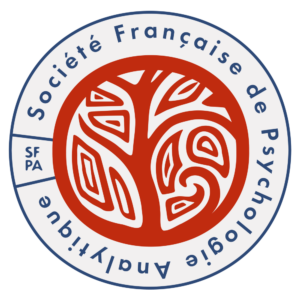Olivier Cametz
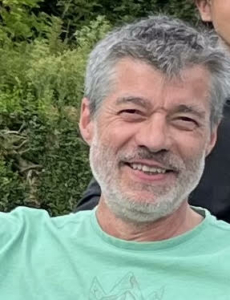
Thoughts on the meaning of development disruptions during adolescence
BIOGRAPHIE
Olivier Cametz is a clinical psychologist, psychoanalyst, and member of both the IIAP (International Association for Analytical Psychology) and the SFPA (French Society for Analytical Psychology.) He has worked for many years in various institutions for children and adolescents as well as in psychiatric hospitals and in adult Medical-Psychological Centers. He currently has a private practice in Paris and maintains a clinical practice with adolescents and young adults in collaboration with Child Welfare (Aide Sociale à l’Enfance). He is the author of several articles published in the Cahiers Jungiens de Psychanalyse and has taught at the C.G. Jung Institute – SFPA in Paris.
ABSTRACT
How can we think about psychological suffering that emerges in the context of a disruption in the essential development of adolescence? Often exposed to the worst of situations since birth, certain adolescents present psychological mutilation whose affects on their individuation process cas alter, at least temporarily, their sens of self, or their sense of reality. We will talk about the aspects of experience where, in the crucible of the therapeutic encounter, it is necessary to seek paths of understanding through Jung’s work and his followers in order to move towards meaning when confusion seems to freeze the clinical process.
Sophie Braun
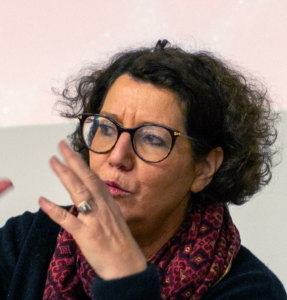
The emergence of meaning, a co-creation in the making
BIOGRAPHY
Sophie Braun is a Jungian psychoanalyst, member of both the SFPA (French Society of Analytical Psychology) and the IAAP (International Association of Analytical Psychology). She is president of the Groupe Jung. she has a private practice in Paris, where she sees both adolescents and adults. She is the author of numerous articles, notably in Cahiers Jungiens de Psychanalyse, and of numerous podcasts and broadcasts. She has also written two books: “C’est quand la vie? Paroles de jeunes, éclairage d’un psy“ and ”La tentation du repli – phobies sociales phobies scolaires, burn-out, addictions aux jeux vidéos…” published by Editions du Mauconduit.
ABSTRACT
“I started to feel the emptiness one day while walking in the forest”, “I don’t understand what all this is for”, “I feel like I’m searching in the void”. In this chaotic, materialistic world, how can we stay psychically alive? Where can we find meaning? What if it wasn’t a question of finding it, but of building it? To co-construct it? To leave room for inner life, so that the genius of the living can irrigate and emerge, without a fierce will but without passivity either, a co-construction between the Ego and the Self, between body and soul, between analyst and analysand, between the foreign and the familiar, between the sacred and the concrete.
Ève Pilyser
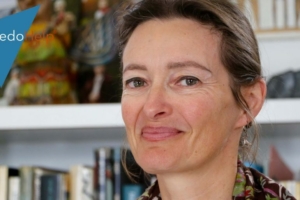
The child archetype questioned through the clinic of anorexia nervosa.
ABSTRACT
Through the clinic of anorexia nervosa the presence of family anxiety is revealed, whose transgenerational roots shed light on a new meaning centered on the family problem of the place of women in the making for the adolescent from two perspectives, complexual and archetypal. The oedipal parental complexes, in their counter-oedipian form, set of a defensive activation of the archetype fo the child and its projection onto the real child. This occurs in two ways: the divine aspect, of a perfect child during childhood, and the diabolical aspect — the opposite— starting a pre-adolescence. As a result, the narcissistic and impulse evolution of the adolescent is blocked. The adolescent, by turning it against herself, embodies, both the violence of the parental impulsive fantasies concerning her and the deadly archetypal projection. Only the de-eroticization/defeminization of her body, through its extreme thinness, can signify the unconscious parental terror of the Oedipal filial desires fantasized as all-powerful. The anorexic symptoms can then be read as a final unconscious attempt to express the sacrifice demanded and the deadly place of object assigned. The attention paid to these two hitherto hidden elements, namely the parental counter-oedipal complex and the existence as the projection of the negative pole of the child archetype, renews psychoanalytic practice in its theoretical and clinical aspects by bringing powerful tools of transformation to the therapeutic process.
BIOGRAPHY
A clinical psychologist, jungian psychoanalyst specializing in the treatment of trauma and sexual issues, she is a supervising member of the SFPA and the IAAP, and a trainer at the C.G. Jung Institute in Paris. She has been practicing for over 30 years, mainly in private practice with children, adolescents and adults. Member of the editorial board of the journal Cahiers jungiens de psychanalyse, she is the author of numerous articles published in this journal as well as the book Pourquoi l’inceste? Comprendre l’incestuel au cœur des familles et son lien avec l’anorexia published by Éditions du Dauphin, 2021.
Marie-Laure Colonna
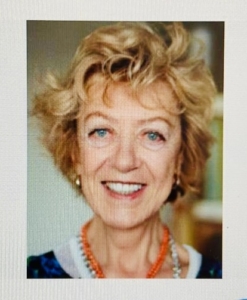
« The alchemical art of aging, towards the mystery of the Golden Flower »
ABSTRACT
The alchemical art of aging can be summed up by the last line of Dante’s Divine Comedy: “Love that moves the sun and the other stars.” The example of a writer who wanted to publish a book on synchronicity will serve as a framework. Clement had to wait 20 years to write it, all the while going through troubling inner experiences that gradually transformed his sharp intellectual awareness into a heartfelt spirituality. We will see that this is also the case for Thomas Aquinas, who, three months before his death, declared that his entire work, the Summa Theologica, was nothing but straw.
In the third age of life, we enter the fourth phase of the alchemical opus: the red work. After the black phases of depression, white phases of contemplation, and yellow phases of disillusionment, the red phase will bring together spiritual and bodily tensions in the crucible of the soul’s center. It is a question, as the alchemist Gérard Dorn said, of spiritualizing the body and embodied the spirit. For the entire Christian tradition has striven to spiritualize the body. But it is the incarnation of the spirit that will complete the marriage of opposites in a red and luminous eros similar to the rising of dawn. Then blue, the color of quintessence, the union of sky and sea, comes with age to accompany the final meanders on the path of individuation, towards the Golden Flower beyond all opposites.
BIOGRAPHY
Marie-Laure Colona is a Jungian psychoanalyst, supervising member of the IAAP (International Association of Analytical Psychology) and member of the SFPA (French Society of Analytical Psychology). Initially trained as a philosopher, she is the author of numerous books and articles in the journal Cahiers de Psychanalyse Jungienne. These include: “Re-enchanting the West, towards an awakening of individual and collective consciousness” Nov. 2019, Coll. Entrelacs, Trédaniel editions; “The facets of the Soul, or the fusion of Spirit and Matter” 2014, Éditions du Dauphin; “The adventure of the couple today” Dervy 2007.
Mark Winborn, Ph.D.
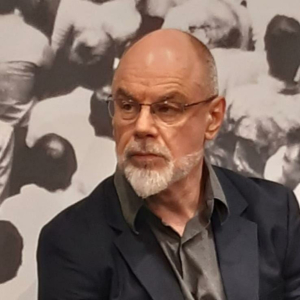
Meaning Emerges: The Role of Experience in the Creation of Meaning
The training and practice of analytical psychology has long been organized around image, dream, complexes, and archetypal patterns. While these areas of emphasis are essential and rich elements of clinical practice, I propose our close focus on these four areas has restricted awareness of and engagement with the most fundamental level of engagement – i.e., experience. As Jung indicates in his letters, “In psychology one understands only what one has experienced” (Vol. II, 1953, p.130). In this presentation, I propose that the fundamental focus of analysis should be the patient’s experience of themselves, others, and the world they are immersed in, as well as the experience emerging between analyst and analysand in the consulting room. Image, dream, complex, and archetypal pattern should be understood and engaged with through the lens of the patient’s subjectivity and the intersubjective matrix of the analytic dyad. Drawing on research on primary affects, somatic experience, neuroscience, metaphor, intersubjectivity, and the psychoanalytic theories of Wilfred Bion, I argue that meaning emerges from our subjective experience and there is a need for a re-orientation of analytical psychology towards a focus on the experience of fantasies, somatic states, dreams, images, activated complexes, affects, interpersonal interactions, and archetypal patterns. Meaning emerges from the experience of these various psychological phenomena. Such a focus on experience should also extend to our practice of analysis – how we listen, how we speak, how we interpret, how we are present. Ultimately, I argue that meaning is not ‘discovered’ but rather is an emergent phenomenon arising from close engagement with the experience.
BIOGRAPHICAL
Mark Winborn, Ph.D., is a Jungian psychoanalyst and clinical psychologist. He is a training analyst with the Inter-Regional Society of Jungian Analysts, the C.G. Jung Institute – Küsnacht, and the Romanian Society for Analytical Psychology. He is the author or editor of 5 books and more than 40 other publications. He received the Gradiva prize from the National Association for the Advancement of Psychoanalysis for the best article published in 2022.
